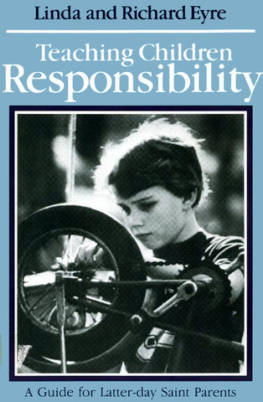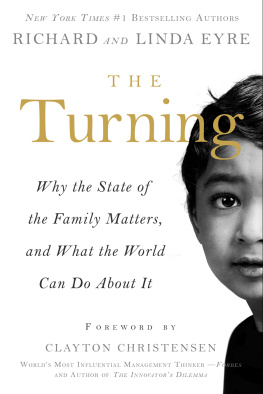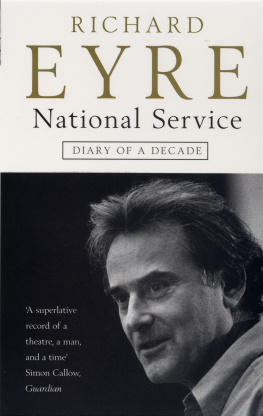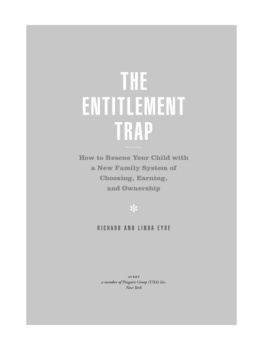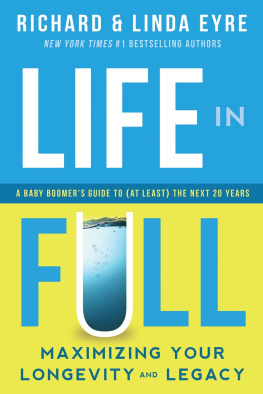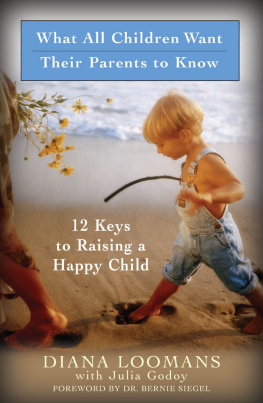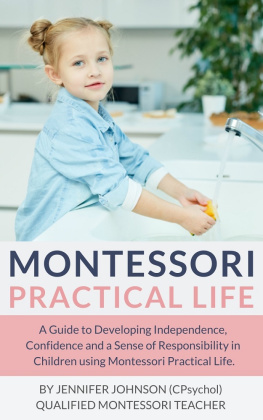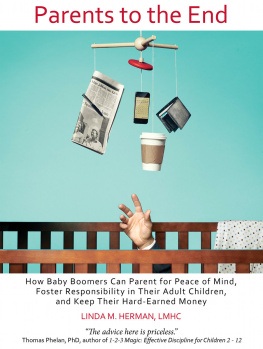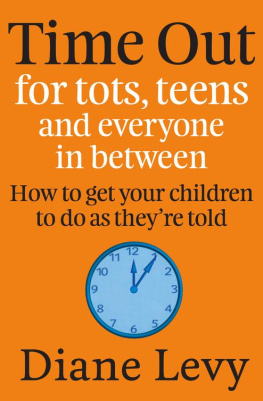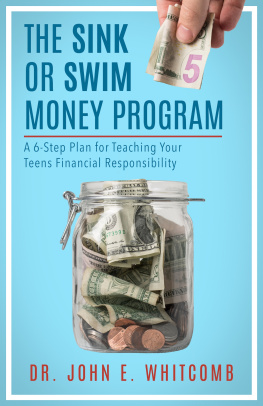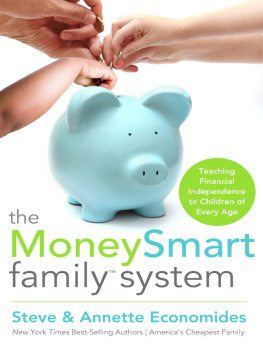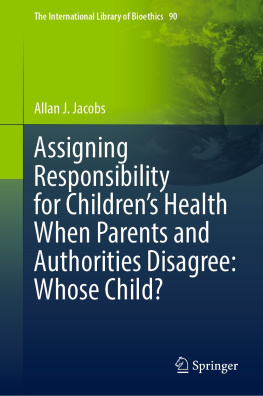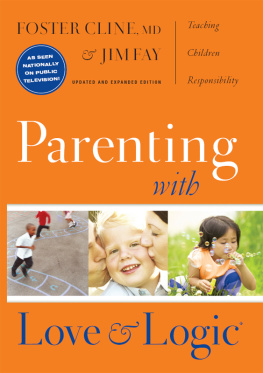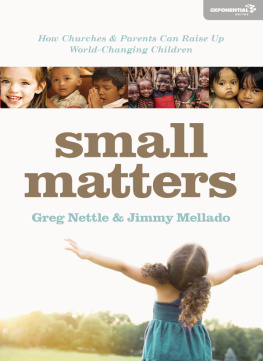Teaching Children Responsibility
Linda Eyre, Richard Eyre
1982 Deseret Book CompanyAll rights reserved. No part of this book may be reproduced in any form or by any means without permission in writing from the publisher, Deseret Book Company, P.O. Box 30178, Salt Lake City, Utah 84130. This work is not an official publication of The Church of Jesus Christ of Latter-day Saints. The views expressed herein are the responsibility of the author and do not necessarily represent the position of the Church or of Deseret Book Company.Deseret Book is a registered trademark of Deseret Book Company.
Preface
We write together, but we write differently. He writes conceptually, sequentially, step by step; she writes emotionally, incidentally, thought by thoughttwo ways to think about the same ideas. In this book his writing is in regular print, hers is in italics.
It is important to us that you realize that all the content is ours together. The concepts came in discussion. He wrote more of it than she because his business schedule offered a little more time than her homemaking schedule. (it's easier to write on an airplane or in an office waiting for a meeting than in the middle of fixing lunches or in the laundry room waiting for the dryer.)
So the thinking was done together and the writing down was done separately. We hope you who are married will take things out of the book the same way we put them in-reading them separately, thinking about them and implementing them together.
Acknowledgments
Special gratitude to:
Members of TCJ parents' groups throughout the country who have put our previous book Teaching Children joy into full effect and spawned many of the ideas for Teaching Children Responsibility.
Corry DeMille, typist and "unscrambler" par excellence, who is also the capable manager of the TCJ parent group system.
Both extensions of our "tree trunk"-the "roots" (our parents), who provided the nourishment and the connection to earth, and the "branches" (our children), who send down the sunshine and cause us to care.
To You as a Parent
Maybe you've felt it too.
It was a month or so after our second child had been born. Our oldest one was nearly two. We were feeling the fear that comes from being parents before one has learned how to be a parent.
We could already see how different this second little child was from the first, and the frightful thought occurred that all our hard-learned, trial-and-error lessons on how to handle the first wouldn't work at all on the second. We realized we were beginner parents in an advanced class. We had gone to school fifteen or twenty years to learn the concepts and skills necessary for our professions, but we didn't have a single credit-hour toward parenting.
Because I had just emerged from graduate school, I took a student's approach to parenting. I responded to my fears by going to the nearest bookstore. I bought eleven paperback books on parenting and brought them home. I spread them out on the table and began to study.
What a shock to discover that none of them agreed on anything! just when I had been convinced by one author's view on discipline, another author argued so compellingly for an opposite theory that I changed my mind. The credentials and degrees of the writers didn't lead to similar views at all. They simply gave them license to disagree very convincingly.
We responded to their disagreements by throwing all the books away. We adopted an opposite approach. Since the so-called experts and all their expertise produced no consensus, we decided to disregard all expertise and adopt the simplest view of all: namely, that techniques and theories don't even matterthat the whole key is love. We would simply love our children with all our hearts, and everything else would take care of itself.
That notion lasted only until we realized how much evidence there was against it. My business partner and his wife, we observed, loved their daughter and showed it by giving her everything she wanted. The result of their love was an insufferably spoiled and unhappy child. A neighbor of ours loved his son and showed it by spending every spare moment trying to make him into the ballplayer he had always wanted his son to be. The result of his love was a nervous, erratic child who was making neither himself nor his father happy.
It occurred to us that love must be intelligent rather than indulgent, that love that is unintelligently applied can be harmful. We realized once again that we needed at least a basic philosophy for parenting, a set of parental goals and some notions of how to achieve them, a framework within which to apply our love.
Our concern and fear were based not only on the love we felt for those two little children and our desire to do right by them, but also on our belief: in a purpose and plan of life; in a Heavenly Father who, until this life had been the only parent but who now had given us his role and stewardship over others of his children; in his promise that if we handled the parenting role well, we could keep it for eternity.
Our love and our belief scared us, made parenthood seem overwhelming in its importance, and drove us to a quest for a personal philosophy of parenting.
Initially our quest was built around the question "What do we want for our children?" It seemed like the right question. We would simply base how we handled our children and what we tried to give them on the things we wanted them to have. The trouble was, there were so many things; security, confidence, creativity, friendliness, peace of mind, imagination, self-esteem, concern for others, a sense of service. The list kept getting longer. What we were developing was a wish-list rather than a workable philosophy.
The breakthrough occurred when we changed the question. We realized that we were only surrogate parents, that the real parent was God, and the real question was not what we want for our children, but what He wants for them.
Now we were getting somewhere. There were answers for the question "What does God want for his children in mortality?"profound and simple scriptural answers.
What we were really asking was, "What are the purposes of mortality, and how can we help our children (His children) accomplish those purposes?" We searched the scriptures and eventually boiled the answers down to three:
1. We should teach our children joy. "Men are that they might have joy." In the gospel sense, there are many kinds and many levels of joy. Children can be taught awareness of all kinds of joy that God sent them here to experience and to find.
2. We should teach our children responsibility. Mortality is a test of our willingness and ability to work out our own salvation, to become responsible agents unto ourselves and to God, thus to be more like him when we return to him. Children who learn responsibility have highly increased chances of doing so.
3. We should teach our children charity. Our ultimate objective is to become Christlike; and charity is the pure love of Christ. If children learn the principles of charity from their earthly parents, then Heavenly Father's objective will be realized.
So the three purposes for mortalityjoy, responsibility, charitybecome the three objectives of parenting. Between them, they provide a framework that includes a place for all principles children should learn.
Further study (and practical application, for the two children who kindled our concern have been joined by five others' led us to feel that the three objectives should be pursued in sequence.

